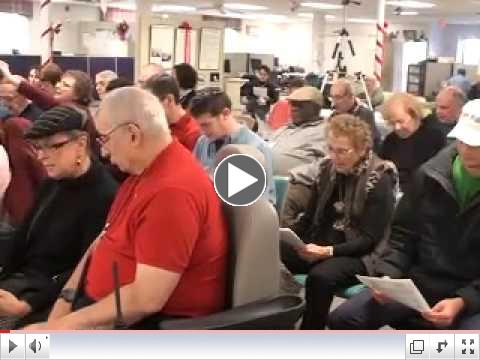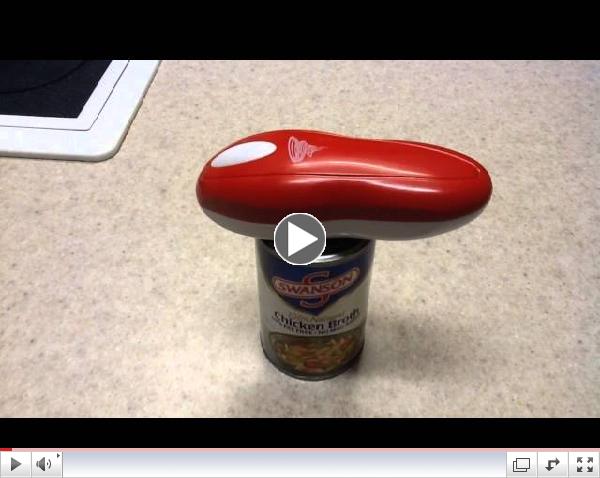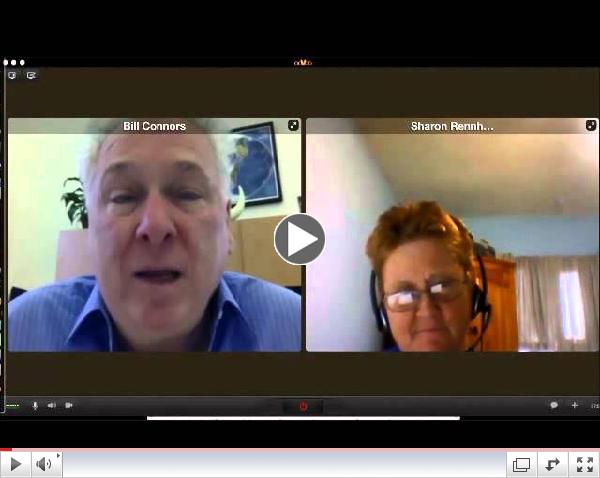 |
 |
Editor's Note:
Every morning I scan headlines in four or five papers. On this particular morning, my eyes caught a headline that sparked curiousity. I was reading the New York Times op-ed pages and found a headline -"The Art of Presence".
In summary, this column written by David Brooks discussed the Woodiwiss family and their approach as a "victim" of trauma.
The New York Times article discussed the double tragedies:
- In 2008, Anna Woodiwiss, then 27, was working for a service organization in Afghanistan. On April 1, she went horseback riding and was thrown, dying from her injuries.
- In 2013, Catherine, then 26, was biking to work from her home in Washington. She was hit by a car and her face was severely smashed up. She has endured and will continue to endure a series of operations. For a time, she breathed and ate through a tube, unable to speak. The recovery is slow.
In her Sojourners blog, Catherine and her family share their lessons with us about how those of us "outside the zone of trauma might better communicate with those inside the zone".
1. Trauma permanently changes us.
2. Presence is always better than distance.
3. Healing is seasonal, not linear.
4. Surviving trauma takes "firefighters" and "builders." Very few people are both.
5. Grieving is social, and so is healing.
6. Do not offer platitudes or comparisons.
7. Allow those suffering to tell their own stories. 8. Love shows up in unexpected ways. And, lastly - 9. Whatever doesn't kill you ... 10. ... Doesn't kill you. The reality is - whether your trauma is an accident, stroke, TBI, medical mishap, or aphasia, there is no going
People with aphasia need to have the freedom to experience the same grieving/healing process as any other person confronted with a trauma. Each PWA takes his/her own time on that journey.
Welcome to a NEW normal.
|
Adler Aphasia Center, Maywood, NJ

Adler members once again presented "Tip of the Tongue," at a recent choral concert. Originally scored and written by members with aphasia, this song has become wildly popular among other aphasia groups around the country as a performance piece.
This Youtube video was published on Dec 19, 2013.
 | | Adler Aphasia Center Tip of My Tongue |
|
Tips for Daily Living - from the American Stroke Association
The American Stroke Association posted this great video showing a hands-free can opener. Other tips are available at StrokeAssociation.org
 | | StrokeAssociation.org/tips Tips for Daily Living for Stroke Survivors |
.
|
Editor's Note:
Do you ever feel burned out, or as one caregiver described it - feeling "burnt to a crisp"?
In order for you to take care of your partner/wife/husband/child, you need to take care of yourself first.
This attached article from the Mayo Clinic (2012) offers some good advice on how to do just that, so that you don't have that "crispy" feeling.
|
Aim for success, not perfection. Never give up your right to be wrong, because then you will lose the ability to learn new things and move forward with your life.
~Dr. David M. Burns
|
Aphasia doesn't have a celebrity to promote awareness and act as a spokesman. Perhaps Tom King can take that role.
 | | Tom and Jessica King |
Tom, a professional clown, has worked with the Cole Bros. Circus and other venues during his 25 - plus year career. 2011 was professionally one of Tom's best. For nine months, he'd been on the road for Cole Bros. Circus acting as their ambassador of good will. A stroke in 2012 that changed the course of his professional clown career.
Says his wife, Jessica King:
He's worked really hard over the past 30 days; He was in Pittsburgh for intensive speech therapy for 6.5 hours a day. They focused on very specific clown words and then at the very end, he put on a show for all the clinicians and everybody."
Most recently, Tom was named Clowns of America International's 2014 Clown of the Year.
Now, Tom and Jessica perform together; they use their performances as a way to inform audiences
about aphasia.
The Kings are reaching out to others living with the speech disorder by starting an aphasia support group in their home area of West Virginia; the support group
will meet the last Tuesday of every month at the main branch of the Cabell County Library.
The Kings invite anyone to call them at 304-542-6046 for more information.
|
|
|
|
|
|
"Finally, when finding words is hard, finding help is easy . . . with BCAT."
|
This is Sharon Rennhack, the chief editor for the aphasiatoolbox newsletter.
What do people with aphasia want?
They want what all humans want - to be loved and be loved, to communicate and share thoughts and ideas with other humans.
Aphasia forcefully takes that ability away.
The theme for this month's edition is communication in the absence of speech or with limited speech.
- We discuss a new way to converse in "A New Normal."
- We show how an aphasia group sings its message about aphasia.
- Two stroke survivors with aphasia discuss the importance of patience and humor:
Dr. Donna Arnett discusses her aphasia journey;
Tom King and his wife show how humor can be the best message of all.
And, also in this edition, Master Clinician Bill Connors discusses his feelings about aphasia.
Chief Editor
Aphasiatoolbox
|
Master Clinician Bill Connors on Aphasia
Editor's Note:
Newsletter Editor Sharon Rennhack interviews Master Clinician Bill Connors about his feelings concerning aphasia.
 | | Interview with Bill Connors - Feb 28, 2014 |
|
Upcoming Courses from Aphasiatoolbox
> Bill Connors is offering the following onsite presentations in 2014, on
Aphasia-Apraxia Therapy: Exploiting Neuroplasticity :
Locations:
March 29, 2014 Mahoning County OH, 1-day seminar
April 26, 2014 Scottsdale, AZ, 1 day seminar
May 17-18, 2014 Spokane, WA, 2-day seminar
June 21, 2014 San Antonio, TX, 1-day seminar
This presentation will offer innovative treatment protocols and technology-based tools that enhance clinical skills, assist in the integration of evidence and patient values into aphasia rehabilitation, and save clinician preparation time.
Techniques and tools that optimize exploitation of neuroplasticity to maximize aphasia recovery will be featured.
Participants will observe demonstrations of and be involved in treatment including live telepractice sessions and video recordings that utilize the comprehensive Brain Compatible Aphasia Treatment Program. The session will be highly interactive and will address the synergies between the treatment of adult and childhood speech and language disorders.
> Bill will also speak and present on the same topic at the following upcoming state SLA conventions:
March 15, 2014
Aphasia Therapy: Exploiting Neuroplasticity, am
Apraxia Therapy: Exploiting Neuroplasticity, pm
The Ohio Speech-Langauge-Hearing Association OSLHA, Columbus, OH
May 8, 2014
Aphasia-Apraxia Therapy: Exploiting Neuroplasticity,
The Canadian Association of Speech-Language Pathologists and Audiologists, Ottawa, Canada
For information on these courses, click here to contact us or phone 724-494-2534.
|
Stroke Connection Interview with Dr. Donna Arnett
The Winter 2014 edition of the well-written publication Stroke Connection, includes an interview with Dr. Donna Arnett, the immediate past president of the American Heart Association/American Stroke Association.
A noted researcher and chairperson of the Department of Epidemiology at the University of Alabama at Birmingham School of Public Health, Dr. Arnett had a stroke in 1986 when she was only 27 years old. It was caused by a genetic clotting disorder that she did not know she had.
In this article, Dr. Arnett discusses the consequences to her stroke - depression.
"It was not a fog because my brain wasn't foggy, but more of a sadness that was almost chemical or biochemical, like a reaction in my brain to healing," she said.
"But I remember being very sad. I don't know how much of that was part of the organic process of the brain healing and how much of it was just the sense that you feel of your own mortality when something as major as a stroke happens. It was at least a year before I felt really back to myself."
She urges other survivors to be kind to themselves when they feel that sadness or depression because it is a natural reaction to stroke.
"Don't be afraid to talk to your doctor or minister or therapist about those feelings because they are real," she said.
She urges caregivers to be patient with their survivors, especially if there is a speech disorder involved. More than 30 years later, she still recalls how frustrating it was to know what she wanted to say and not be able to say it.
"Being unable to speak is an isolating and frightening place to be," she said.
"Patience is a must. Let your loved one heal in their own time."
Great advice.
To read the whole article, please go to this link.
|
|
|
|
|